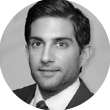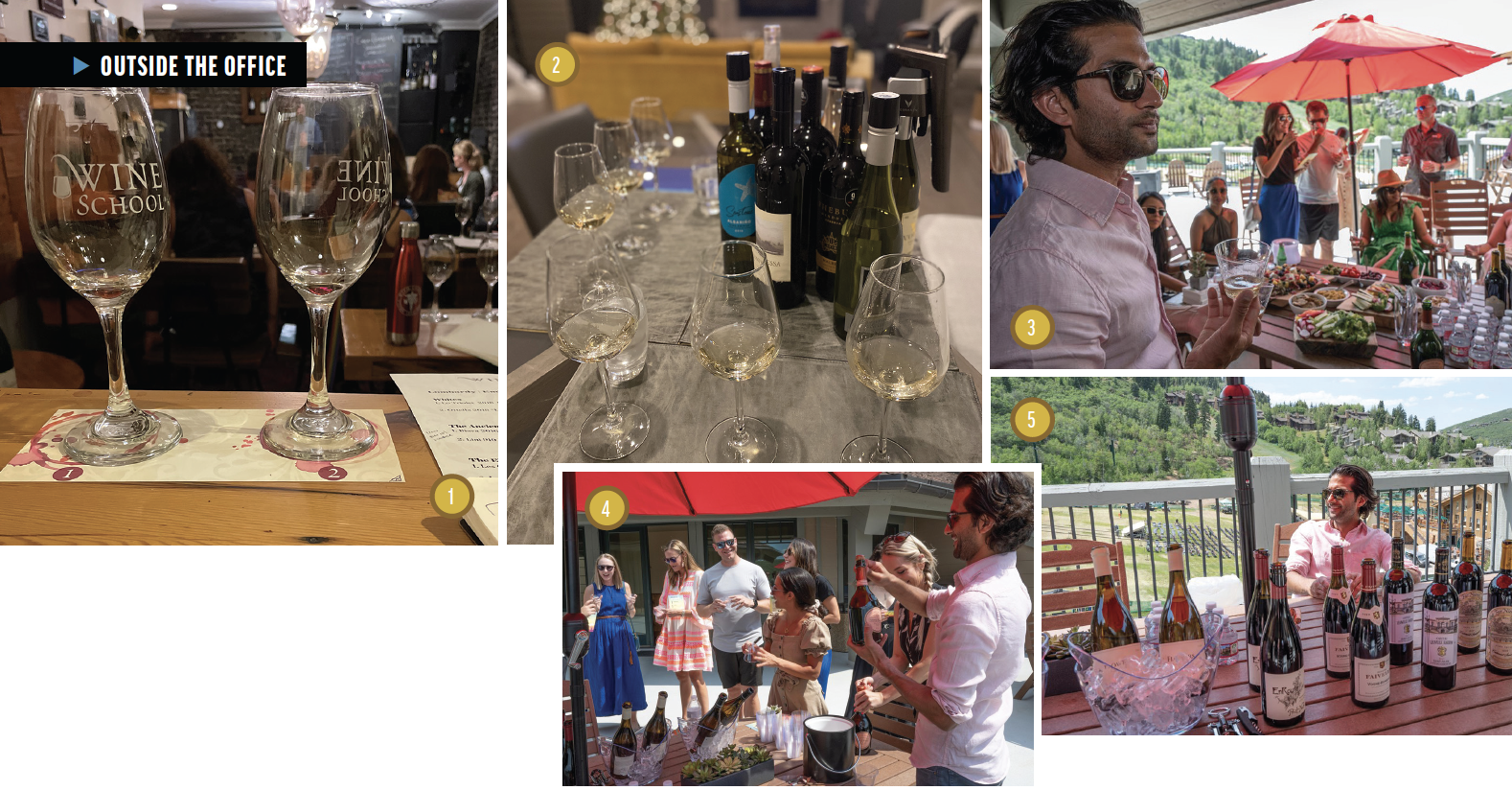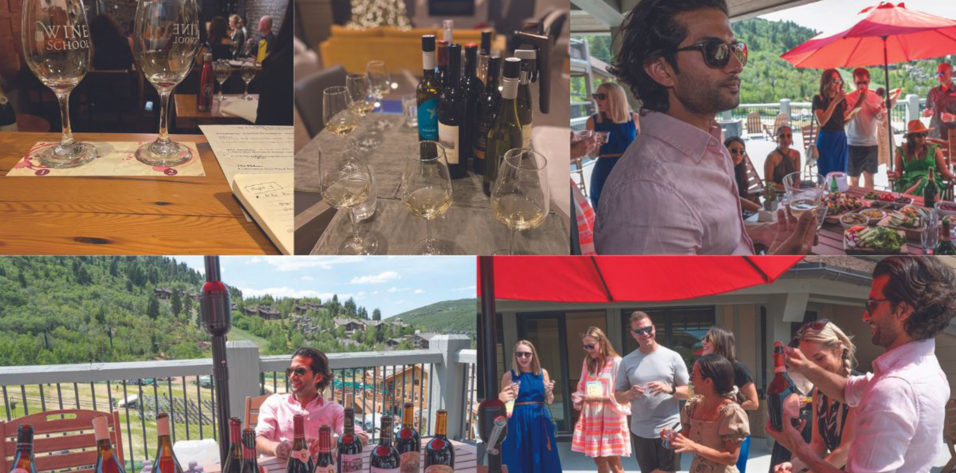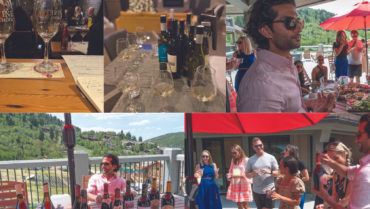
In my free time, I enjoy studying and learning about wine. When my wife and I first started dating about 15 years ago, I never ordered wine when we went out to eat because I didn’t understand or know anything about it. I found the array of options at a liquor or wine store and on wine lists at restaurants overwhelming and intimidating. My wife ultimately convinced me to start drinking wine casually, and over time, we took it to a whole new level.
WINE COURSES
About 7 years ago, I attended a casual 2-hour weekend class on French versus Spanish wine at the Wine School of Philadelphia (Figure 1). I went with my wife, Shailee, and two neighbors. The school offers casual and formal sommelier and winemaking programs via the National Wine School. The informal courses like ours are typically one-offs geared toward people looking to have fun and socialize. I was interested in learning more about wine, but the class was mainly a fun social activity. We tasted various wines, learned a lot, and had a great time.
My wife and I attended more casual weekend classes over the next several years before deciding to try one of the formal instructional courses. We’ve now completed seven of them. Each course typically consists of classes held once per week for around 10 weeks, and students learn the history of different wines and how to taste and identify them (Figure 2). About half the attendees are like me—professionals who want to study wine as a passion. The other attendees are studying to work in the wine industry, whether to work as a sommelier at a restaurant, open their own wine store, or become a buyer for a big wine company.

Figures. A photo taken by Dr. Meghpara during a course at the Philadelphia Wine School (1). A selection of wines prepared by Dr. Meghpara and his wife, Shailee, to practice for an upcoming blind wine tasting exam (2). Dr. Meghpara leads a New World versus Old World wine tasting event at the 2022 AECOS Summer Symposium in Deer Valley, Utah (3–5).
WINE VACATIONS
My wife and I enjoy traveling, and we have vacationed in a few of our favorite wine regions over the years. Our first wine trip was to California’s Napa Valley. Because French wine is our favorite, we’ve also made trips to Bordeaux, Champagne, and Burgundy. Unfortunately, we haven’t taken a wine trip in the past several years—when our knowledge has been the greatest—because of the COVID-19 pandemic and our busy schedules. I want to travel to new regions and revisit others to taste the wine and apply what I’ve learned.
BENEFITS OF THE HOBBY
My passion for wine has opened the door to many unique opportunities for personal and professional growth.
Networking. Rather than stick with standard small talk at dinner, my love of wine opens a world of new conversations, especially if I am speaking with someone who is also interested in wine. Awkward and forced professional interactions can be transformed into fun conversations. I have made many friends during a dinner spent talking about wine.
Unique opportunities. I’ve also enjoyed the opportunity to lead wine-tasting classes at Wills Eye Hospital and volunteered my time to lead pairing dinners for charity auctions. I recently led a New World versus Old World (basically France vs California) wine tasting event at the 2022 American-European Congress of Ophthalmic Surgery (AECOS) Summer Symposium in Deer Valley, Utah. Bryn Mawr Communications organized the event, and around 20 of my colleagues (and friends) attended (Figures 3–5). It was a beautiful venue, and everybody had a lot of fun, although not everyone made it to the cookout afterward.
Critical thinking. Wine tasting requires analytical thinking. It’s like putting a puzzle together or calculating the appropriate IOL power. Identifying a wine from a blind test is not as simple as taking a sip and recognizing it as a specific wine. An analytical thought process that considers several variables is required. Does the wine smell like a certain fruit? If so, it may contain a certain grape from a certain region. Does the wine have some other smell that indicates an older age? Does the wine have a certain flavor that points to a specific region of origin? This critical thinking keeps me sharp.
CONCLUSION
I don’t have a specific goal in mind with my passion for wine and pursuit of education on it. My wife and I are going at our own pace. Every now and then, when life is a little less hectic and everything works out just right, we take another course.
I am lucky that my hobby has opened the door to so many fun experiences in my personal and professional life.




